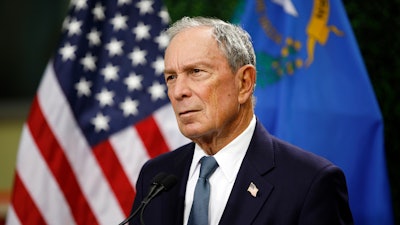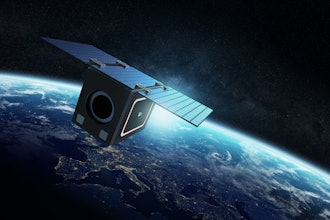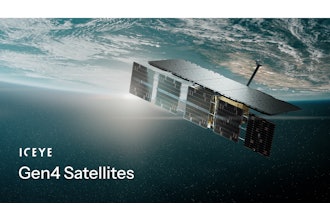
SACRAMENTO, Calif. (AP) — Former New York City Mayor Michael Bloomberg is teaming up with California to use satellites to track climate pollutants.
Bloomberg Philanthropies announced its partnership with the state and the San Francisco Earth-imaging company Planet on Wednesday. It builds on former California Gov. Jerry Brown's declaration last year the state would launch its "own damn satellite" as the federal government receded from global climate commitments.
Bloomberg's involvement puts the effort on a larger scale and helps Planet and the California Air Resources Board expand what it will track. Antha Williams, the philanthropies' head of environment programs, declined to say how much Bloomberg plans to spend on the initiative.
"We really see the potential in the kind of imaging that Planet can bring combined with California's appetite to actually then use that info," Williams said. "That really provides a model for what certainly other states across the U.S. could be doing but (also) other jurisdictions around the world."
California is still two to three years away from launching its satellite, said spokesman Stanley Young of the air board. Planet already operates the most Earth-observing satellites in orbit.
The partnership with Bloomberg expands California's initial vision, which only included the tracking of methane, a highly potent greenhouse gas known as a "super pollutant." It's emitted from industrial dairies, landfills and oil and gas drilling exploration.
The satellite's high-resolution imaging will make it easier to pinpoint large emissions if, for example, an oil well or storage site begins leaking.
"There is nothing in the sky at this time that can track that," Young said.
Under Newsom's direction, the air board has expanded the project to include tracking forest health and risk from wildfire. Bloomberg also wants to track and analyze coal-fired plant operation beyond California. The philanthropy already funds the Sierra Club's "Beyond Coal" campaign that aims to end its use in the United States.
For California, the project is essential to help the state meet its ambitious climate goals. Brown signed an executive order for the state to reach "carbon neutrality" by 2045, meaning it takes as much carbon out of the air as it emits. The state has also committed to drastically reduce its greenhouse gas emissions.
Bloomberg, meanwhile, sees an opportunity to gather better data to inform national and global policy making and advocacy campaigns, Williams said.
The philanthropy wants "to expand on the model of what California is proving in terms of the ability to use satellites for climate action," Williams said.






















